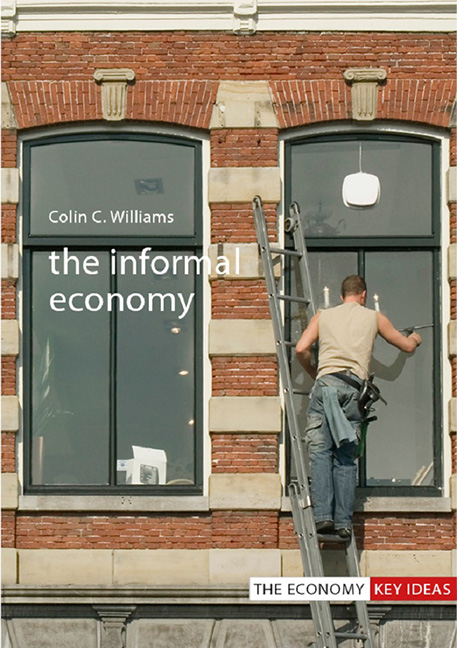1 - Defining the informal economy
Published online by Cambridge University Press: 09 August 2023
Summary
Introduction
What is the informal economy? Why is it important to study? And what needs to be known about this sphere? The aim of this opening chapter is to answer these three key questions. In the first section, the various nouns and adjectives used to denote this sphere are reviewed along with the different definitions that have been used. The second section then reviews why it is important to study. To address this, it is necessary to consider the reasons from the perspective of not only informal workers and businesses, but also formal enterprises and workers, consumers as well as governments and societies. This will show that the negative consequences far outweigh any positive implications. The third and final section of this chapter then outlines the structure and argument of the book. At the outset, however, it is necessary to define the type of activity being discussed in this book.
What is the informal economy?
Ever since Keith Hart (1973) first introduced the concept of the “informal economy” in his study of Ghana nearly half a century ago, there has been an ongoing debate about how to define this sphere of economic activity and differentiate it from the formal economy. Indeed, what is here referred to as the “informal economy” has been alternatively denoted using over 45 different adjectives and 10 different nouns. It has been variously called the “black”, “cash-in-hand”, “hidden”, “irregular”, “invisible”, “shadow”, “subterranean”, “undeclared”, “underground”, “unobserved”, “unorganized” or “unregulated” economy, sector, work, employment, activity, sphere or realm, to name but a few.
Casting one’s eyes over these adjectives, it becomes quickly apparent that all describe in various ways what is missing, insufficient or lacking about activity in the informal economy compared with activity in the formal economy (e.g. it is unorganized, unregulated or undeclared). Indeed, this is also a feature of all definitions of the informal economy. Reviewing the different types of definition used, three broad kinds can be identified, namely enterprise-, jobs- and activity-based definitions. Enterprise-based definitions describe what is absent, insufficient or lacking in informal economy enterprises compared with formal enterprises, jobs-based definitions what is absent, insufficient or lacking in informal jobs relative to formal jobs, and activity-based definitions what is absent, insufficient or lacking in informal economic activities compared with formal economic activities.
- Type
- Chapter
- Information
- The Informal Economy , pp. 1 - 16Publisher: Agenda PublishingPrint publication year: 2019

